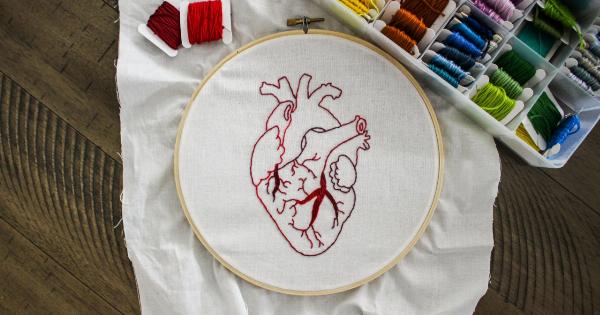Arrhythmia, also known as irregular heartbeat, is a condition that affects millions of people worldwide. It is characterized by the abnormal electrical activity in the heart that causes the heart to beat too slowly, too quickly or irregularly.
Arrhythmia can increase the risk of heart failure, stroke, and other cardiovascular diseases.
Coffee and tea are popular beverages consumed by billions of people globally. The beneficial effects of coffee and tea on human health have been a topic of debate among researchers.
Studies suggest that coffee and tea contain several bioactive compounds that can have positive effects on the cardiovascular system, including the prevention of arrhythmia.
Benefits of Coffee Consumption on the Cardiovascular System
Coffee is one of the most widely consumed beverages globally, and it contains several bioactive compounds, including caffeine, polyphenols, and antioxidants.
Studies suggest that the consumption of coffee can have positive effects on the cardiovascular system, including the prevention of arrhythmia.
Caffeine is the main bioactive compound in coffee, which stimulates the nervous system and increases the heart rate.
A study published in the Journal of the American Heart Association in 2018 found that moderate coffee consumption (less than six cups per day) was associated with a reduced risk of arrhythmia. The study examined data from the UK Biobank, which included over 390,000 participants. The researchers found that the risk of arrhythmia was approximately 3% lower for each additional cup of coffee consumed per day.
Polyphenols are another bioactive compound present in coffee, which have antioxidant and anti-inflammatory properties.
A study published in the European Journal of Cardiovascular Prevention and Rehabilitation in 2009 found that daily consumption of coffee improved heart rate variability in healthy individuals, which is an indicator of good cardiovascular health.
Benefits of Tea Consumption on the Cardiovascular System
Tea is one of the most popular beverages consumed globally, and it contains several bioactive compounds, including caffeine, polyphenols, and catechins.
Studies suggest that the consumption of tea can have positive effects on the cardiovascular system, including the prevention of arrhythmia.
Caffeine is present in tea, but in lower amounts than coffee.
A study published in the Journal of the American Heart Association in 2014 found that the consumption of green tea was associated with a lower risk of developing atrial fibrillation, which is a type of arrhythmia. The study included over 65,000 Japanese adults and found that the risk of atrial fibrillation was approximately 15% lower in those who drank at least one cup of green tea per day compared to those who did not drink green tea.
Polyphenols and catechins are other bioactive compounds present in tea, which have antioxidant and anti-inflammatory properties.
A meta-analysis published in the American Journal of Clinical Nutrition in 2013 found that the consumption of black tea was associated with a reduction in blood pressure, which is a risk factor for cardiovascular disease.
Conclusion
The consumption of coffee and tea has been associated with several beneficial effects on the cardiovascular system, including the prevention of arrhythmia.
Studies suggest that the bioactive compounds present in coffee and tea, including caffeine, polyphenols, and antioxidants, are responsible for these beneficial effects.
However, it is important to note that excessive consumption of coffee and tea can have negative effects on the cardiovascular system, including an increased risk of arrhythmia.
It is recommended that individuals limit their consumption of coffee and tea to moderate levels to reap the health benefits without the negative consequences.




























